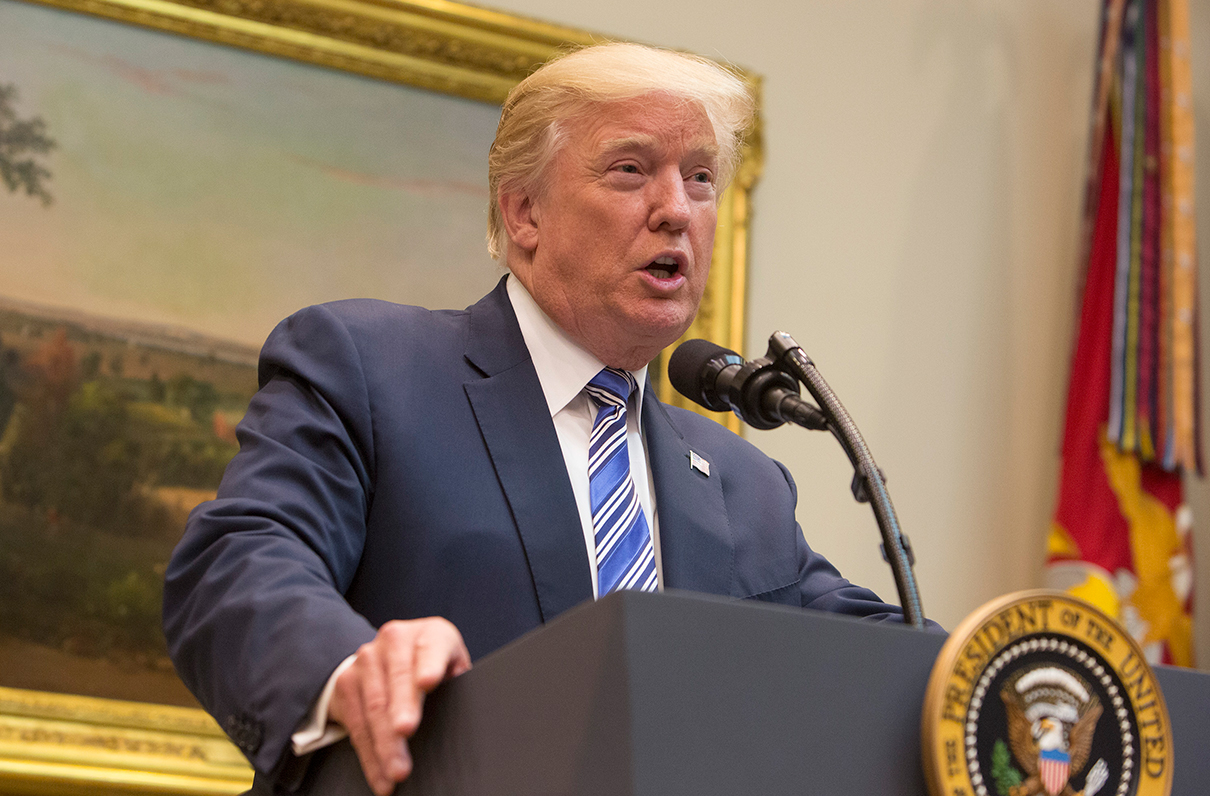President Donald Trump released his FY 2019 budget proposal for the VA on Monday.
The VA's total FY 2019 budget request is $198.6 billion, more than a 6-percent increase over last year's proposal, and a 175 percent overall increase in the department's budget since 2006.
As in previous years, the budget builds on VA Secretary Dr. David Shulkin's efforts to modernize the VA and rebuild trust between the agency and the veterans it serves.
“The FY 2019 budget reflects the strong commitment of the president to provide the services and benefits that our nation's veterans have earned,” said Shulkin.
Ironically, the agency is still operating under a continuing resolution (CR) signed into law early last Friday, a few hours after the government shut down. Included as part of the CR package was a topline spending agreement lifting budget caps for two years to pay for defense and nondefense programs.
Appropriators now have until March 23, when the CR expires, to write final spending bills laying out exactly how agencies are expected to spend their funding for FYs 2018 and 2019, thus pushing any contentious budget debates to March 2019, well after the fall midterm elections.
This time last year, Trump entered office under a CR passed by the 114th Congress in 2016. It took until May 2017 to approve the FY 2017 budget.
Déjà vu? Somewhat. The difference this year is the VA didn't start the year with full appropriations, as it did in the previous fiscal year. (The VA was the only agency to receive its full appropriations.) Rather, it joined the rest of the federal government under a CR at the start FY 2018.
A large part of the VA's 2019 budget includes mandatory funding, $109.7 billion of which is required to pay veterans disability compensation and pensions, readjustment benefits, and veterans insurance and indemnities accounts. An additional $121.3 billion is for what's called advance appropriations for 2020, mostly to provide a continuous funding mechanism to pay veterans' benefits in the event of a government shutdown or other crisis in the future.
The rest of the budget (known as discretionary funding) goes mostly to fund medical care programs and services. The proposal requests $88.9 billion for 2019 and $79.1 billion in advance appropriations, of which $14.7 billion will go directly to fund non-VA care in the community.
Some of the key benefit and medical programs and services to be funded include:
- hiring of 607 full-time employees to handle claims appeal
- increasing funding to implement appeals reform and to reduce pending backlog
- additional funding to manage the VA's 139 national cemeteries as well as open nine new cemeteries in 2019 and 2020
- investing in information technology to modernize legacy health and financial systems
- implementing a lifetime electronic health record to enhance safety and coordination of care for veterans receiving care in the VA, DoD, or the community
- replacing the Veterans Choice program and consolidating all VA community care programs into a single medical service account to streamline operational service
- focusing on critical programs such as mental health, pain management, prosthetics and research programs; expanding suicide prevention screening and risk assessments; and providing more options for treating mental health disorders
- targeting resources more efficiently and prioritizing foundational services, utilizing the private sector where appropriate
“This budget addresses replacing Choice and reforming VA community care, longstanding priorities for MOAA,” says MOAA President and CEO Lt. Gen. Dana T. Atkins, USAF (Ret). “We appreciate the administration's continued commitment to investing in VA modernization in this proposal, and we look forward to working with the Congress to ensure the secretary has the authority and appropriations to implement the necessary reforms.”
Both chambers will hold hearings so lawmakers can learn more about Secretary Shulkin's fiscal plans in his budget request, starting with the House Veterans' Affairs Committee hearing Thursday, Feb. 15.
MOAA will report back to our members as we learn more about the budget and its impact on veterans.
